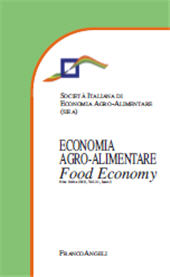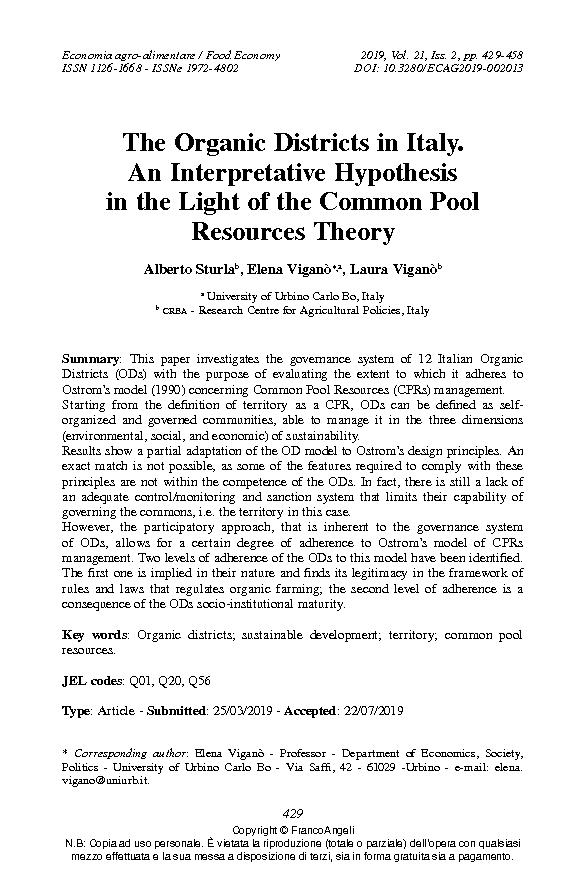The Organic Districts in Italy : An Interpretative Hypothesis in the Light of the Common Pool Resources Theory
429-458 p.
This paper investigates the governance system of 12 Italian Organic Districts (ODs) with the purpose of evaluating the extent to which it adheres to Ostrom's model (1990) concerning Common Pool Resources (CPRs) management. Starting from the definition of territory as a CPR, ODs can be defined as selforganized and governed communities, able to manage it in the three dimensions (environmental, social, and economic) of sustainability. Results show a partial adaptation of the OD model to Ostrom's design principles. An exact match is not possible, as some of the features required to comply with these principles are not within the competence of the ODs. In fact, there is still a lack of an adequate control/monitoring and sanction system that limits their capability of governing the commons, i.e. the territory in this case. However, the participatory approach, that is inherent to the governance system of ODs, allows for a certain degree of adherence to Ostrom's model of CPRs management.
Two levels of adherence of the ODs to this model have been identified. The first one is implied in their nature and finds its legitimacy in the framework of rules and laws that regulates organic farming; the second level of adherence is a consequence of the ODs socio-institutional maturity. [Publisher's text].
Fa parte di
Economia agro-alimentare : XXI, 2, 2019-
Articoli dello stesso fascicolo (disponibili singolarmente)
-
Informazioni
Codice DOI: 10.3280/ECAG2019-002013
ISSN: 1972-4802
MATERIE
PAROLE CHIAVE
- Organic districts, sustainable development, territory, common pool resources



